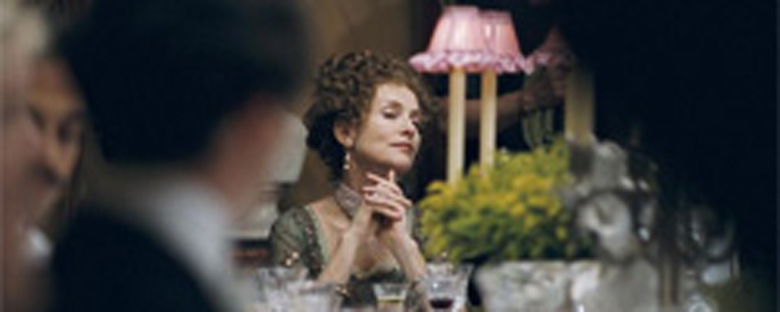Reviews
Patrice Chéreau
France / Italy, 2005
Credits
Review by Leo Goldsmith
Posted on 11 October 2005
Source Studio Canal 35mm print
Related articles
Features: The 43rd New York Film Festival
Stories of infidelity in contemporary film usually come in one of only a handful of prescribed forms. Woman realizes her husband is a shit who has been cheating on her and leaves him; woman realizes her husband is a shit who has been cheating on her, but decides to remain with him for the sake of her child, mental or financial stability, or because she is noble; woman realizes her husband is a shit and decides to cheat on him with someone younger and hunkier. Within these forms there is surprisingly little variation, the audience is assured a secure point of sympathy and focalization, and the infidelity can be viewed safely as a morally one-sided affair.
But for its stylistic excess and smart, brittle performances, Patrice Chéreau’s Gabrielle falls more or less within this schema. Based on “The Return” (an early Joseph Conrad short story that even the author seems to have loathed), the film tells the story of Jean Hervey, a pompous, wealthy businessman in turn-of-the-century Paris, who returns home one day to find a letter of confession from his wife. But soon Gabrielle returns home, cowed and ashamed, admitting her inability to leave her husband and run away with her lover. What proceeds is an ugly battle of recrimination and deception: Jean seethes, accuses, and tries to feign normalcy; Gabrielle remains largely impassive, but occasionally buckles under the weight of her actions, which for her are both “terrible and right.”
This struggle is played out almost entirely inside the cold, museum-like arena of the Hervey’s townhouse, and so it is the strength of the two lead actors that conveys the film’s emotional power. In the title role, Isabelle Huppert delivers a characteristically mesmerizing performance, vacillating between total inscrutability and a nerve-wracking fragility almost imperceptibly. And Pascal Greggory is as severe as in his turn as Robert de Saint-Loup in Ruiz’s Time Regained (with its ferociously loud eating sequence), but here tempers it with a sense of humiliation and a weird sensuality.
But strangely, though Chéreau’s direction of his actors is masterful, his idiosyncratic attempts at formal innovation seem counterproductive. Specifically, the film employs the rather hackneyed art-film device of switching between black-and-white and color film stock in ways that at first seem meaningful, but soon become arbitrary. This might seem harmless enough, but there are other, more peculiar conceits. In particular, Chéreau will often interrupt moments of high drama, halting them in freeze-frame and glossing them with outbursts of onscreen text. Arising at moments of emotional (and musical) excess, this text apparently duplicates the characters’ lines in an enormous white typeface, but it has the effect of forestalling the action and often literally blocks out the actors’ faces. With actors like Huppert and Greggory, who are elsewhere able to convey the minutest intricacies of jealousy and pain almost effortlessly, such formalist grandstanding adds nothing.
Ultimately, in spite of some effective work by the lead actors and some blind stabs at stylistic ingenuity, Gabrielle proves itself to be a rather conventional, even old-fashioned infidelity story. Gabrielle’s lover turns out to be neither young nor hunky (in fact, he’s grotesque), but otherwise her actions are justified by Jean’s cartoonish chauvinism. Greggory is enormous fun to watch, but his character is a thinly sketched prig with little nuance. Stalking around the Hervey’s sculpture-filled tomb of a house, he must deliver woefully unsubtle lines like, “I loved her as a collector loves his prized sculpture.” Huppert’s lines aren’t much better, as her character must function as the equivalent of the “modern woman” (“The thought of your sperm inside of me is unbearable”). In the end, though the film attempts a subtle pirouette on the themes of A Doll’s House, it treads a more conservative path.
We don’t do comments anymore, but you may contact us here or find us on Twitter or Facebook.



